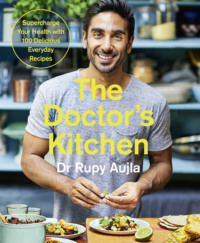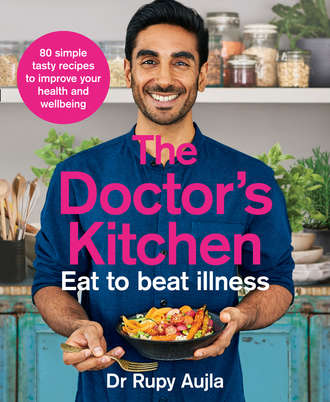
Полная версия
The Doctor’s Kitchen - Eat to Beat Illness: A simple way to cook and live the healthiest, happiest life

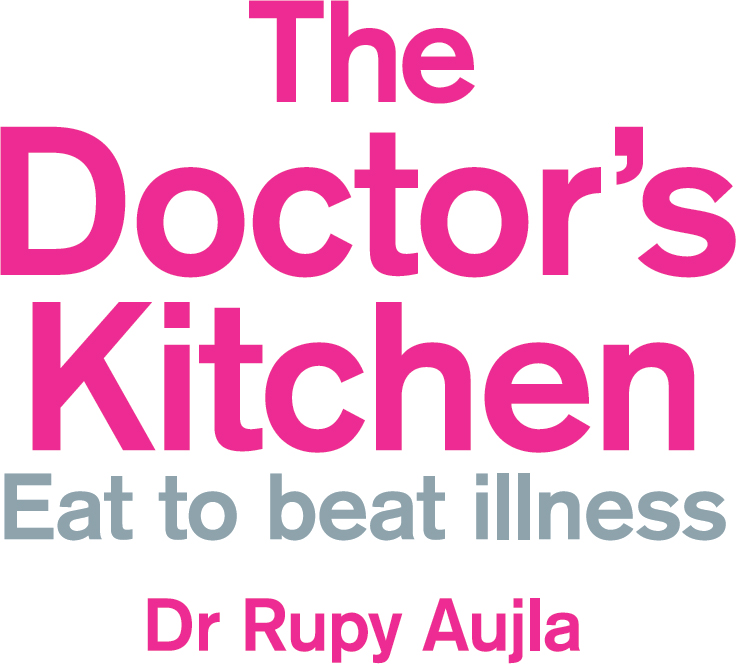
Dedication

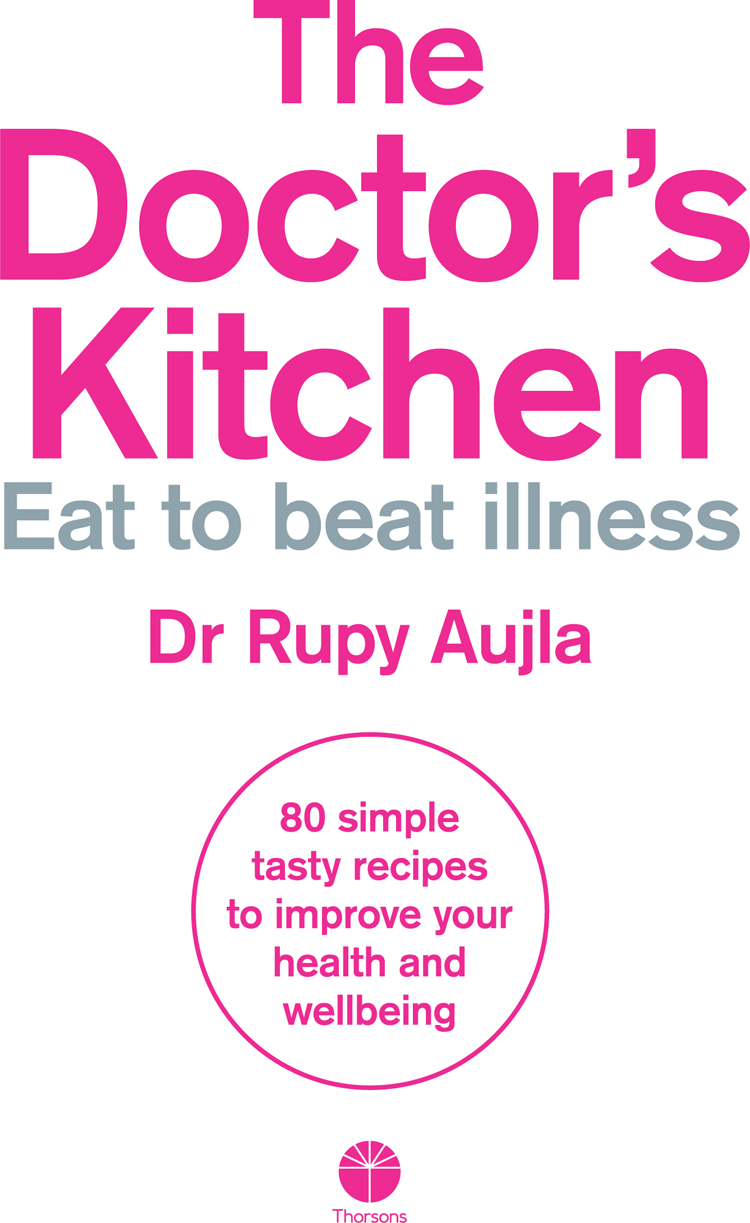
Copyright
Thorsons
An imprint of HarperCollinsPublishers
1 London Bridge Street
London SE1 9GF
www.harpercollins.co.uk
This edition published by Thorsons 2019
FIRST EDITION
Text © Dr Rupy Aujla 2019
Photography © Faith Mason 2019
Cover layout design ©HarperCollinsPublishers Ltd 2019
Cover photographs © Faith Mason 2019
A catalogue record of this book is available from the British Library
Dr Rupy Aujla asserts the moral right to be identified as the author of this work
All rights reserved under International and Pan-American Copyright Conventions. By payment of the required fees, you have been granted the nonexclusive, non-transferable right to access and read the text of this e-book on screen. No part of this text may be reproduced, transmitted, downloaded, decompiled, reverse engineered, or stored in or introduced into any information storage retrieval system, in any form or by any means, whether electronic or mechanical, now known or hereinafter invented, without the express written permission of HarperCollins e-books.
While the author of this work has made every effort to ensure that the information contained in this book is as accurate and up-to-date as possible at the time of publication, medical and pharmaceutical knowledge is constantly changing and the application of it to particular circumstances depends on many factors. Therefore it is recommended that readers always consult a qualified medical specialist for individual advice. This book should not be used as an alternative to seeking specialist medical advice, which should be sought before any action is taken. The author and publishers cannot be held responsible for any errors and omissions that may be found in the text, or any actions that may be taken by a reader as a result of any reliance on the information contained in the text which is taken entirely at the reader’s own risk.
Find out about HarperCollins and the environment at www.harpercollins.co.uk/green
Source ISBN 9780008316310
Ebook Edition © March 2019 ISBN: 9780008316327
Version 2019-04-01
The Doctor’s Kitchen Podcast
For more information, check out The Doctor’s Kitchen Podcast, where I speak to a range of experts about the topics covered in this book, drawing on the latest research. To listen to the relevant episode simply look out for Spotify links throughout the book.
Listen and subscribe to The Doctor’s Kitchen Podcast

Music to cook to – soundtrack your cooking with Dr Rupy’s ultimate playlist

Contents
Cover
Title Page
Copyright
Dedication
The Doctor’s Kitchen Podcast
Introduction
Eat for your Brain
Eat for your Heart
Eat for Inflammation
Eat for Immunity
Eat to beat Cancer
Eat for your Mood
Eat for your Skin
Eat for your Eyes
Eating and living for Ultimate Health
1 Breakfast
2 Small plates
3 Rapid meals
4 Main meals
5 Desserts
6 Pastes, spices and teas
References
Index of Searchable Terms
Acknowledgements
About the Publisher
Introduction
I’m going to convince you that the opportunity of having the biggest impact on your health, is actually in your hands. In this book, you’ll begin to understand why, as a doctor, I’m so passionate about communicating that food and lifestyle is the best method of boosting health and reaffirming the concept of Plates over Pills. Quite simply, natural whole foods are the most advanced ‘drugs’ you could ever imagine and what we eat literally has an impact on every bodily system. I’m going to take you on a tour of why this is the case and how to take control and become the expert of your own health.
My name is Rupy. I’m an NHS medical doctor, founder of the non-profit Culinary Medicine UK, and I’m passionate about teaching everybody how to use food and lifestyle as medicine. I firmly believe the key to a happy, healthy life starts in our kitchen and this new book Eat to Beat Illness aims to continue and deepen the conversation we started in my first book. In my first book, I took you on a culinary journey through food in medicine, introducing you to the most fascinating and relevant concepts that prove why I believe that what you choose to put on your plate is one of the most important health interventions anyone can make. That book could be described as a manifesto, declaring why we need to take nutrition seriously. This, my second book, is a blueprint that demonstrates the intersection of diet and lifestyle factors across multiple medical specialities and how you can improve your ultimate level of wellbeing today.

As a doctor, it’s my responsibility to deliver credible, evidence-based information, which is why I’m very comfortable talking about the medicinal effects of eating well. Research is clearly demonstrating that improving our diet and lifestyle can enhance our health, and the traditional scepticism surrounding this topic is changing. More doctors are taking an active interest in this area either because of personal experience, anecdotes from their patients or simply because people are starting to demand more from their doctors than purely pharmaceutical fixes that are unsustainable.
The decision about which topics to discuss in this new cookbook has been heavily influenced by my experience as a doctor. Patients often tell me in clinic that they didn’t realise how food can impact a variety of conditions beyond heart disease and sugar control. Whether it’s their bones, arthritis, skin, or even sleep and mood, I always have a chat with my patients about food and discuss the relevance of nutrition and lifestyle to their overall health. There is an incredible amount of research looking at the impact of diet and it is the vital first step in the resolution of many problems. Every patient deserves this information and this new book will give you an insight into why I’m so vocal about the subject.
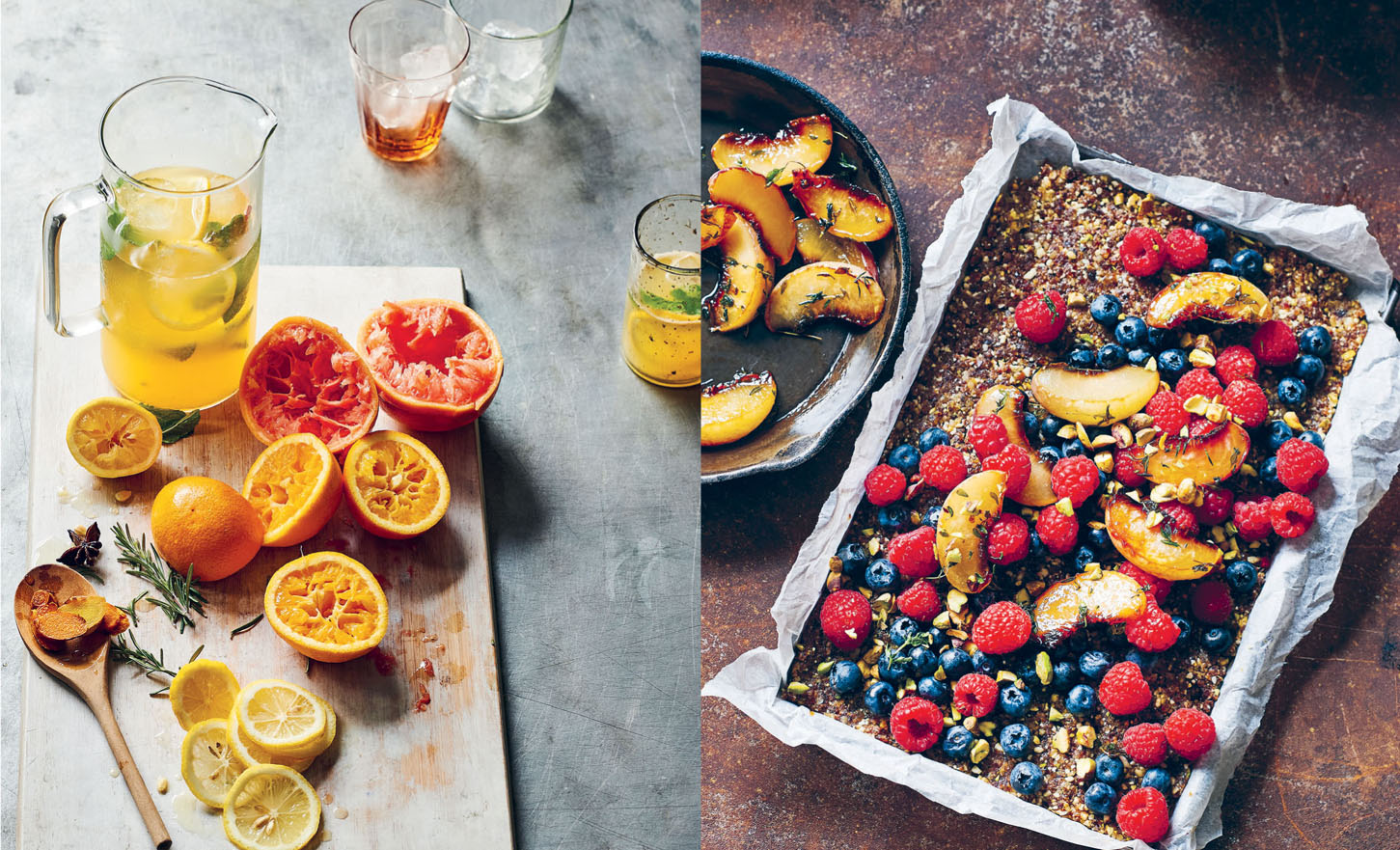
The principles of a healthy diet are simple: eat whole, colourful, mostly plant-based foods, including quality fats and plenty of fibre, and treat meat and fish as luxury items rather than staples. You’ll see this theme is woven throughout this book and I’ll also be dissecting exactly why these are so important by showing how this way of eating affects different conditions and parts of our body. Using the lens of science, the hundreds of research papers I’ve read and a good dose of common sense, I aim to demonstrate exactly why our food can be so impactful on healthcare today.
Although I touched on the clear link between food and overall health in the first book, here I examine in more depth how food affects our mental health, making us think more clearly as well as protecting us from disease. I discuss the impact of nutrition on skin quality and even how our eyes are affected by diet. It’s a fascinating and overwhelming field, but after reading these chapters you’re going to be even more motivated to eat well for life, and the simple recipes to complement the science will ease you into a deliciously healthy lifestyle.
On this journey we’re going to be talking about how simple changes to what you eat can protect and amplify your body’s own defences against ill health. Your immune system can be thought of as a complex network of specialised proteins, specific parts of the body and the population of microbes concentrated in your gut. I’ll walk you through how nourishing our bodies with incredible, accessible ingredients can ensure the correct functioning of our immune systems. What’s more exciting, however, is that the food choices I encourage you to make are culturally diverse and vibrant. The complex flavours found in widely available spices, for example, not only deliver exceptional taste, but have clear benefits to our health.
Most healthy-eating books concentrate on heart health and weight, but it’s not commonly recognised that lifestyle and nutrition can impact the most important organ in your body – the brain. I’ll be introducing you to a way of eating that embraces quality fats plus a variety of colourful and exciting ingredients that have scientifically recognised benefits for the brain. Eating a diet according to these principles helps protect you from one of the worst diagnoses we as doctors have to deliver – dementia – while helping you achieve a sharper, clearer mind.
I’ll also talk through the concepts of inflammation and oxidative stress, and tackle the uncomfortable subject of cancer. By covering all these topics, I hope to convince you that your diet is not simply something to manipulate to improve your aesthetic appearance or weight. We can certainly achieve those results with our lifestyle, but it is so much more important than just this. It is the very foundation for a happy life and for improving every aspect of your body’s function.
‘By approaching disease with a holistic perspective, of which food is a vital part, we can tackle the root causes of disease and help our patients truly live well.’
I have high aspirations to create a movement that considers food as medicine. I mean this in the most literal sense. I am not a naturopath nor an alternative care practitioner. I’m an NHS GP with an interest in emergency medicine. But I recognise that there is a lot we as conventional physicians can learn from the lifestyle principles of ancient medicine. By approaching disease with a holistic perspective, of which food is a vital part, we can tackle the root causes of disease and help our patients truly live well. Our plates are more powerful than pills and it is a key starting point for lifestyle changes that can protect against disease and boost our health.
Medicine is changing. Our global healthcare systems are struggling under the weight of treating lifestyle-related disease; without a lifestyle-related solution we must really address how we tackle this uncertain landscape. Now that we understand the molecular mechanisms by which dietary and lifestyle factors can affect chronic inflammation, mental health and the immune system we can confidently encourage nutrition as a health strategy. Judging from the medical conferences I attend globally, there has never been more interest in nutritional science and I’m hopeful that the future of modern healthcare has an immense focus on this subject.
Since writing my last book, Culinary Medicine UK has taken shape and a few medical schools are pioneering this method of teaching their students the foundations of clinical nutrition, as well as how to cook. Governments across the world are seriously considering nutrition training as part of public schooling, and cooking classes for patients could become part of treatment within the healthcare system. This is the future of medicine and I’m glad to see it unfold in small steps, but we need to accelerate its adoption. By purchasing this book, reading it and applying it to your own life you are now part of this conversation and contributing to the mission.
I believe my role as a health professional is to increase your awareness of the choices that will benefit your health. What you’ll find in this book is a diverse selection of recipes bursting with flavour, which will help empower you to make healthy meal choices that are easy to put into practice and infinitely beneficial to your wellbeing. They will focus on Speed, Simplicity of ingredients, incredible Flavour and high Nutritional value. This combination of information and recipes will keep you in flourishing health and I’m certain that you will find this way of life fulfilling and achievable.
As well as showing you the benefits of food, I’ve highlighted ‘Lifestyle 360’ changes that are relevant to each subject discussed in the chapters. I’ll be talking through the evidence behind deep breathing exercises, meditation practices and the importance of sleep and exercise through the lens of different conditions. It’s essential that everybody reading this understands the overall value of all these lifestyle factors and their impact on health. By utilising all these factors in unison, we can deliver a package that has great synergy and is, in essence, medicinal.
Although exercise and rest are critical to our health, eating is a particularly special feature of our lifestyle that naturally has greater importance to our wellbeing. Food is a universal language. Some of our strongest memories and emotions are linked to meals and, luckily for most of you reading this, it’s not purely to nourish. We celebrate with food, break barriers, solidify relationships over shared plates and communicate across cultures through the enjoyment of each other’s recipes. For this reason, although this is a ‘health’ book, my recipes will travel through different cuisines to reflect my belief that food the world over can be healthy and incredibly tasty.
Health starts on our plates. My promise to you is that although my recipes are influenced by the thousands of research studies I’ve read on nutrition and medicine, they are far from boring. My motto in the kitchen is Flavour as well as Function and you’ll learn how a delicious diet can create a more resilient body and mind. Step away from the scales and calorie counters and open yourself up to the wonderful world of eating to benefit your body and beat illness.
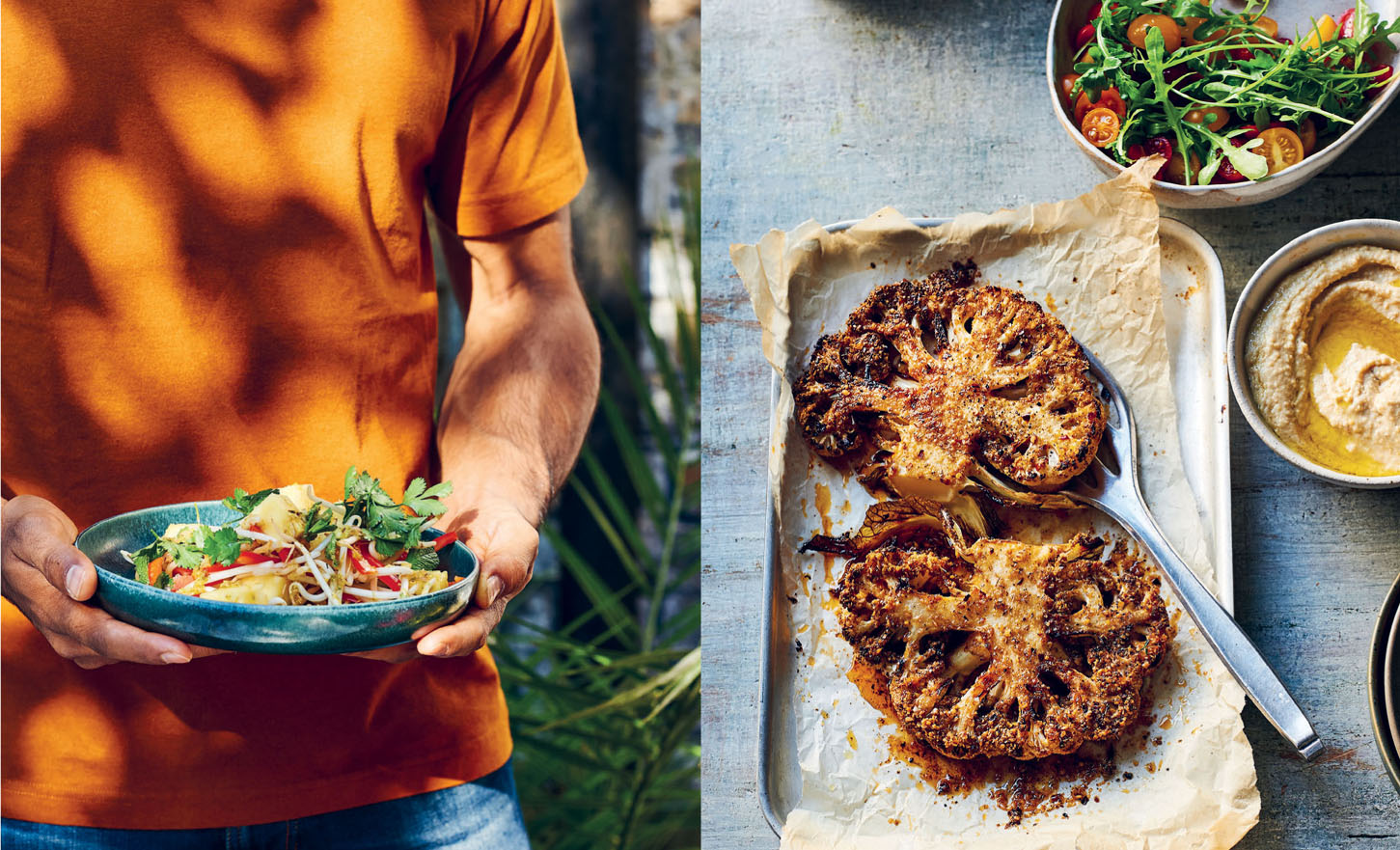

Brain

To kick off the ‘eating to beat illness’ discussion there is simply nowhere more fascinating to start than with the brain. Our most prized possession, it controls the centres for movement, thought, emotion and all the automatic processes such as breathing and heart rate that we do not have to consciously concern ourselves with. Quite literally, it is the most advanced machine ever known to us and, unlike the latest computer or most sought-after gadget, we all have one.
Our skull houses trillions of neural synapses (the junctions between nerve cells); these carry information across different brain centres that have specific functional roles for the body. The beautiful coordination of these electrical signals determines our actions and thoughts which are generated in these centres.
Of late, however, our brains are under fire. As a medical doctor, I witness the aftermath of conditions such as dementia and strokes all too often, and the prevalence of these is increasing.1 These conditions reveal the vulnerability of the brain and body once these centres become affected and a culmination of insults have taken place.
Dementia is now the second leading cause of death in the UK and cases are rising.2 Before you assume it is a natural part of ageing and a consequence of our population living for longer, there is clear evidence to suggest the contrary. Our lifestyles drastically impact the health of our brain and this chapter will help you understand why and how we can protect ourselves and optimise our brain power.3
Loss of emotional intelligence, inhibition of thoughts, motor-control deficits, memory impairment and many more signs illustrate exactly why diseases of the brain are so life-changing. It’s the experiences of these patients that push me to highlight the impact of diet and lifestyle and how we use the tools within our control. And it starts with our plates. I haven’t written these symptoms to scare you, but rather to highlight how beautifully coordinated our brains are and the consequences of poor lifestyle choices that are preventable.4 We tend only to value the importance of such organs when we have lost control of their precious functions and, while you may consider these conditions to only be relevant in later age, I’m here to inform you that looking after your brain is a lifelong process.5 The acceptance that you ‘naturally’ lose brain function as you age is a myth6 and I want to show you that looking after your brain can be enjoyable and delicious!
NEUROPLASTICITY
The ability of our brain to harness new neural connections, create new brain cells and positively adapt its function in response to stimuli from our environment is a concept known as ‘neuroplasticity’. It is one of the most fascinating and promising topics I have come across in recent years, and one where food and lifestyle play a pivotal role.7 Previously, it was not commonly believed that cells of the nervous system could regenerate or improve their function. It was conventional thinking that after childhood development, our brains were relatively ‘static’.8 However, research is demonstrating that not only can we change the synapses to improve our memory and the general functioning of our brain, but it could be a useful tool in the management of conditions such as neurodegenerative disease, like dementia.9 As you read, you will understand how diet and lifestyle are involved in this neuroplastic process in a way that can positively impact our brain health.
BRAIN INFLAMMATION
By changing the internal environment of the body, we can create the perfect setting for the cells of our nervous system to function optimally.7 Oxidative stress is a topic we will visit later on (here), but our brains are particularly susceptible to an imbalance in inflammatory proteins. It has been demonstrated in many studies that an ‘inflammatory western diet’ (high in sugar, refined carbohydrates, processed foods and salt) is disastrous for brain health.10, 11 In addition to putting people at risk of heart disease and stroke, which all raise the risk of neurological disorders, this western-style diet promotes inflammation that could disrupt the blood-brain barrier – a protective layer that surrounds the central nervous system and is integral to the health of your brain.10
In contrast, diets high in polyphenols (the types of plant chemicals that we find in colourful fruits and vegetables) are shown to reduce oxidative stress, which may explain their benefits to brain health.12 The Mediterranean diet contains an abundance of different polyphenols and has long been recognised as one of the healthiest diets to follow for most people.13 In general, it consists predominantly of plant-based proteins, plenty of pulses, quality fats from nuts and seeds as well as colourful vegetables and oily fish. The diet has been shown to reduce the incidence of vascular disease that can contribute to poor brain health, and protects against diabetes, which we know is related to declining mental ability.14 Oxidative stress and inflammation are generally reduced in those adhering to a Mediterranean style of eating, which is in part explained by the sheer number of antioxidants found in the fruits and vegetables consumed.15
MIND DIETS
As well as the potential of diet and lifestyle to reduce the incidence of neurodegenerative conditions, I think it’s also important to bring attention to some of my patients’ anecdotes following improvements to their diet and lifestyle. I regularly hear comments such as, ‘I feel clearer in my head’, ‘my mood has improved’, or even, ‘I have so much more energy these days’. I recognise that these are soft and subjective statements but – despite no concrete, clinically validated method of measuring these outcomes – it gives me further hope that positive diet and lifestyle changes could improve the lives of everyone and not just those labelled with a condition. The improvements in mental clarity and mood could potentially be explained by reducing inflammation in the brain and oxidative stress, but there’s a lot more to learn in this field.16
A specific diet, appropriately called the MIND diet, was born out of some of the research looking at the correlation of high vegetable intakes and lower rates of dementia.17 This study, plus many others, have highlighted certain ingredients as beneficial to the resilience of our brains and I’d like to bring attention to them. It is by no means a definitive list of ingredients you ‘must have’ to protect your brain, nor is it a suggestion that we can radically renew our brain cells using these foods. However, it is an introduction into how incredible and impactful our diet can be to the function of our brain.3 Hopefully this will prompt you towards a healthier perspective that could potentially offer protection to this vital organ.
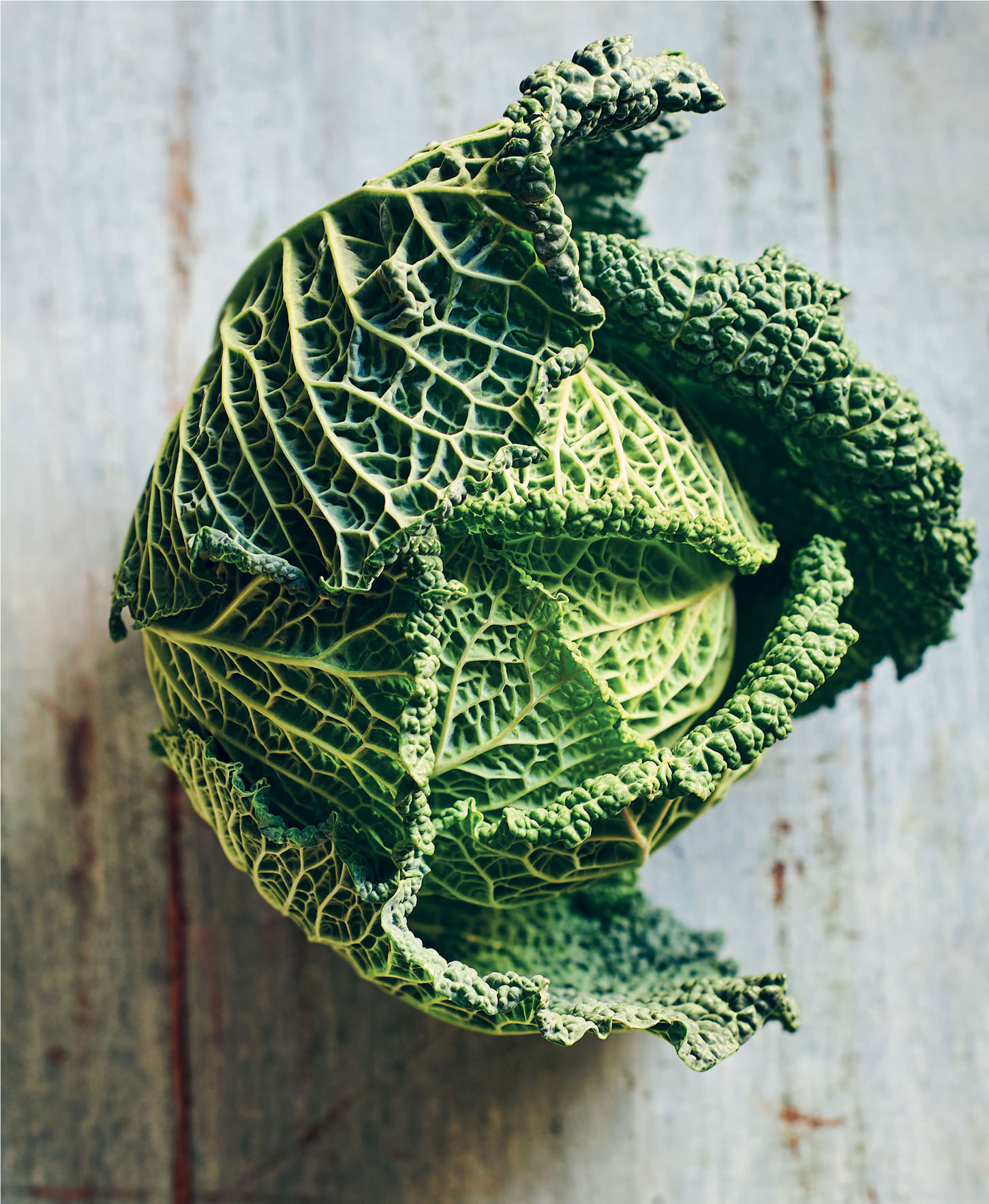
+ Greens These can impact multiple systems of the body including the brain, and are one of the most important parts of a healthy diet. Ingredients such as cavolo nero, spinach, rocket and sprouts contain high amounts of phytonutrients that drastically reduce inflammation in the body.18 Inflammation is a key component of why brain processes can become disrupted leading to symptoms of fatigue and sometimes low mood.19 Dark leafy greens are also a source of fibre that could benefit the gut bacterial population found in the digestive tract, which is also involved in the regulation of inflammation in the body.20 Try the Harissa Beans and Greens (see here) for a spicy and delicious way of including more greens.
+ Omega-3-rich fats Found in oily fish, nuts and seeds, plus extra-virgin olive oil. The long-chain Omega-3 fatty acids are of particular interest, as they have been shown to promote the growth of brain cells which can help maintain the adaptability of the brain.21 These sorts of fats are potentially key components of the brain’s neuroplastic ability. Another benefit of nuts, seeds and oily fish in the diet is the quality protein they provide. These ingredients are broken down into amino acids (the building blocks of protein) which are used for the production of neurotransmitters, the chemical messengers of the brain that are created every time your brain centres need to send signals.22 Adequate stores of good-quality protein ensure the availability of these nutrients for the production of these essential chemicals. Try the Almond and Hazelnut Lentils with Capers (see here) to get nuts into recipes.


